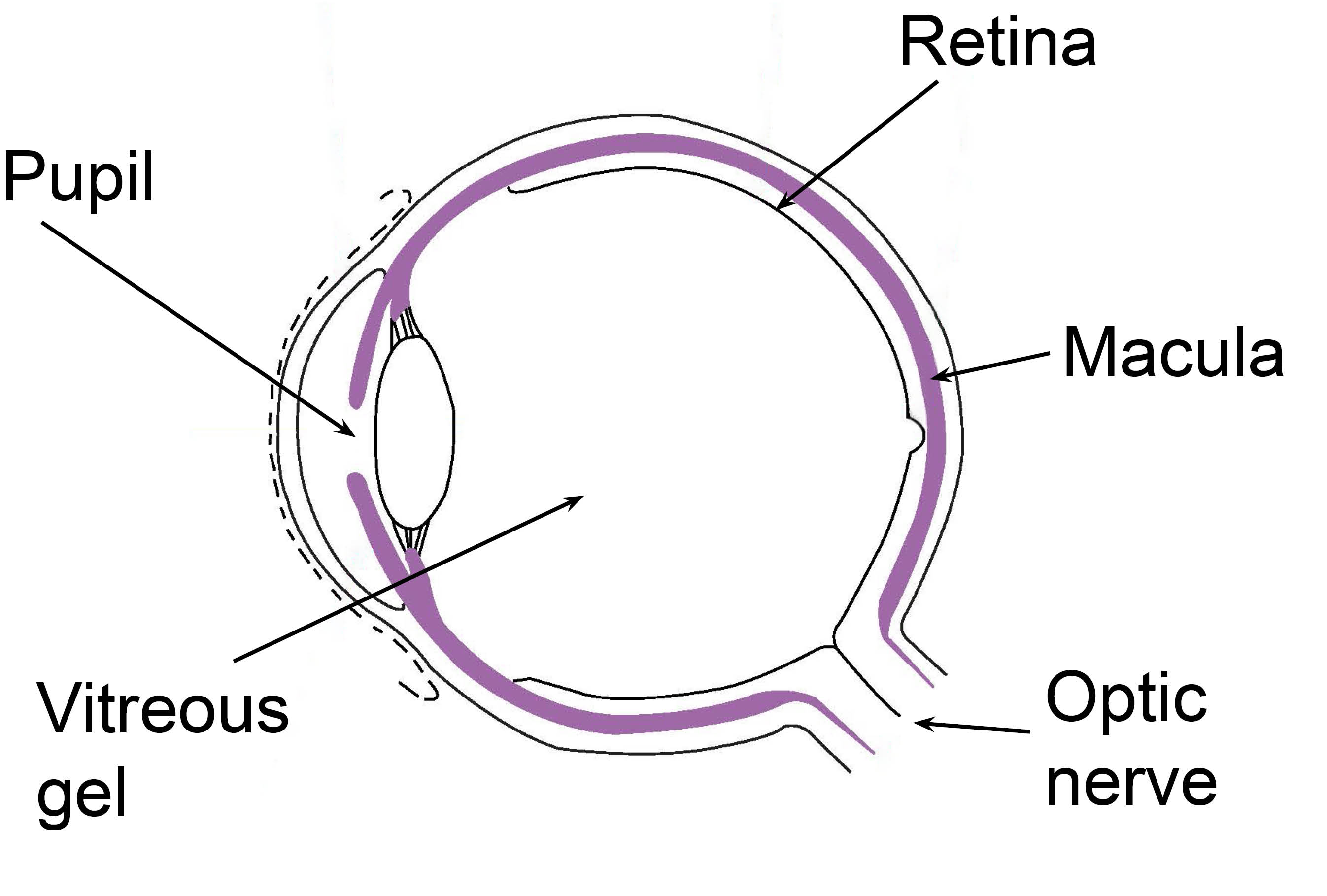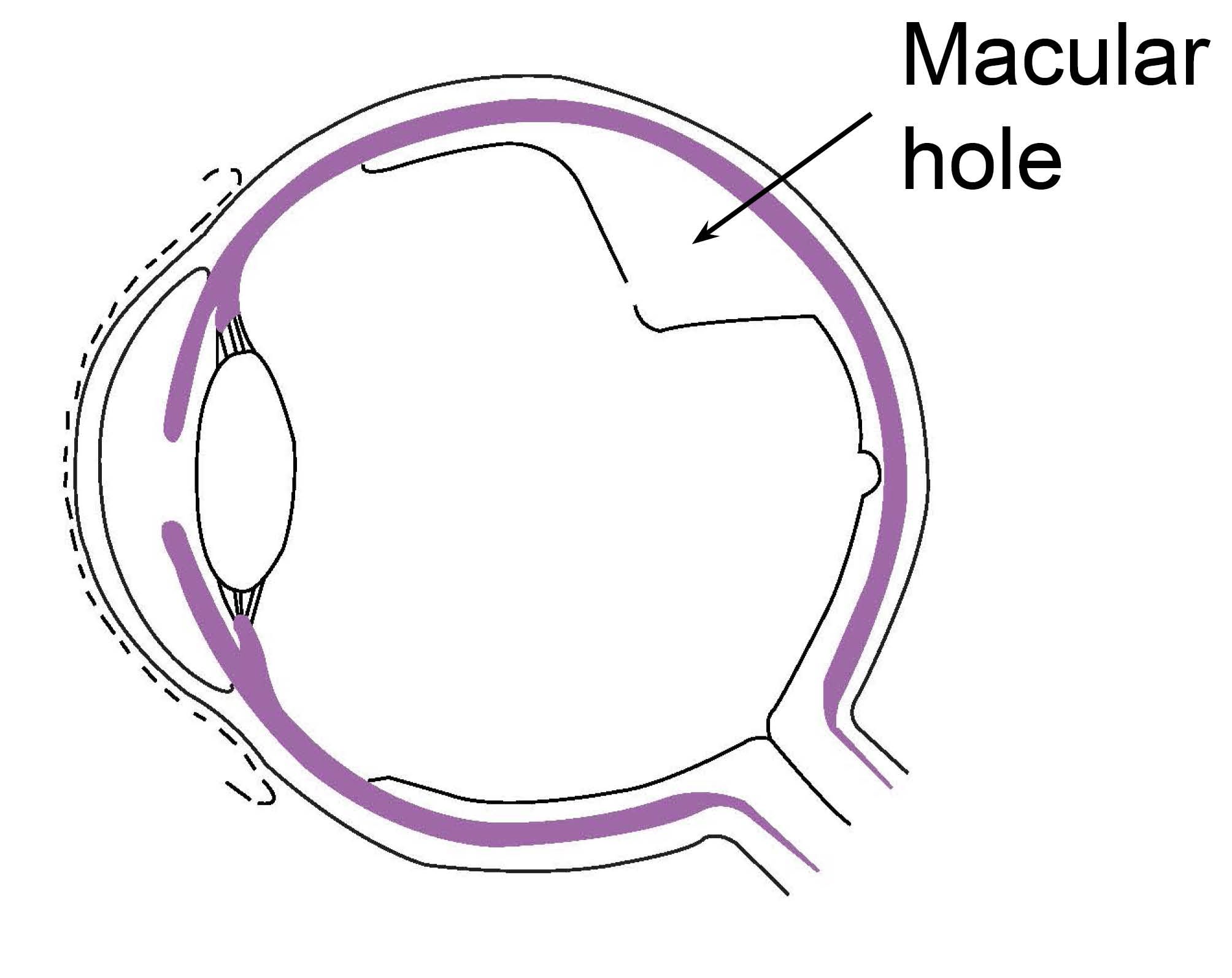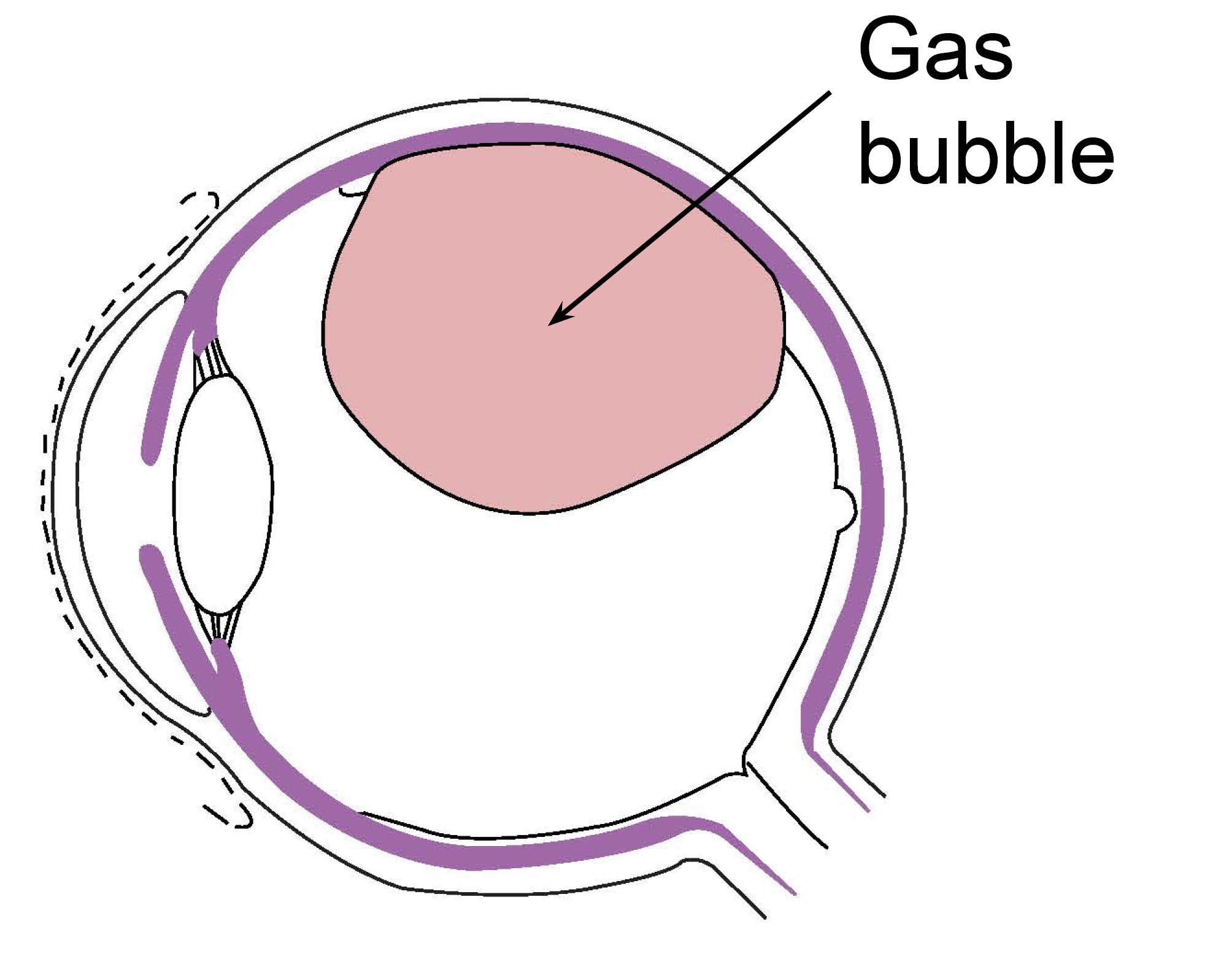Macular hole
Information for patients from the Ophthalmology Department
You have been given this leaflet as your ophthalmologist (eye doctor) has diagnosed you with a macular hole. This leaflet explains what a macular hole is, and what your treatment options are.
What is the macula?

The macula is the part of the retina responsible for central vision. It is this part of the eye that you use to see fine detail, such as reading or recognising faces.
What is a macular hole?
There are a number of problems which can occur in the macula. One of these is a hole in the part of the retina that you use to read with (macular hole).
What are the symptoms?
You may notice some blurring of your vision (eyesight) or distortion (bending and twisting of straight lines) while you are reading, as the macula is responsible for your central vision.
How is a macular hole diagnosed?
At the clinic you will have drops put into your eyes to dilate your pupils, and a special scan (OCT) will be performed. You will then be examined by a doctor who specialises in retinal surgery.
How is a macular hole treated?
You will need an operation called a vitrectomy. This procedure is carried out under local anaesthetic (you are awake) or general anaesthetic (you are asleep).
Instruments are placed through small holes in the white of your eye and the jelly inside (vitreous) is removed. The fine membrane which keeps the macular hole open will be peeled off. A gas bubble is then injected into the vitreous space inside your eye, to help seal the hole.
What happens immediately after surgery?
If you have had a general anaesthetic, you will usually need to stay in hospital for one night following your surgery. Most patients would be discharged the same day if their procedure was done under a local anaesthetic.
In order for the gas bubble to support the macular, you will need to position your head face down for 50 minutes in every hour for five days and nights. For more information, see the Positioning (Posturing) following vitreoretinal surgery to your eye leaflet.
How successful is the surgery?
For nine in every 10 patients, the macular hole will be closed after surgery. Surgery is usually successful at improving the distortion but does not always improve a patient’s vision.
What if I decide not to have surgery?
If left untreated your vision might deteriorate (get worse) and distortions may increase. At worst you will lose all central vision.
Is there an alternative to surgery?
No, at the moment this is the only option.
What are the complications?
The surgery is difficult and complications can happen, for example infection, bleeding, glaucoma, inflammation, retinal detachment, wound problems, drooping eyelid, double vision, distortion, and blurred vision.
Following this operation, you will develop a cataract in the next few years, which is why very often, your surgeon will suggest removing the cataract at the same time. For more information on cataract surgery, please see the One Stop Cataract Surgery leaflet.
If a complication happens then you may have a drop in your vision.
What happens after my surgery?
At first the gas bubble will obscure your vision, but gradually over a few weeks you will notice a black line travelling downwards in your vision. This is the edge of the gas bubble as it gets smaller in size. Eventually the bubble breaks up into smaller bubbles. After about eight weeks this will disappear.
Will I be given medication?
You will be prescribed eye drops, which you will need to use for at least four weeks following your surgery.
Should I make an appointment with my optician?
Often you will need to change your glasses prescription following eye surgery. You should ask for advice from your eye doctor about the best time to visit your optician.
Can I travel by plane?
You should not travel by plane while the gas is in your eye. This will be for approximately two months following your surgery. Your consultant will confirm when it is safe to travel by air.
Further information
If after reading this leaflet you have any further questions or concerns, please speak to the healthcare professional responsible for your care.

